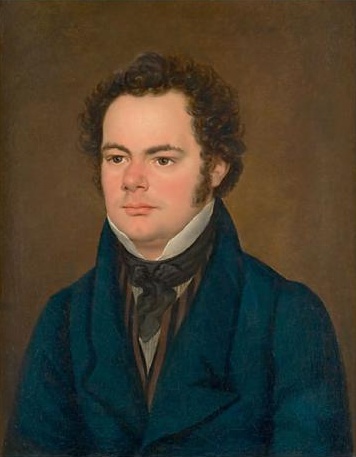|
Deutsche Messe (Schubert)
The '' (German Mass)'', 872, is a hymn-cycle by Franz Schubert written in 1827. Neither a Mass nor strictly speaking German, it was published in Vienna as what it is: '' (Hymns for the Celebration of the Holy Offering of Mass)''. It sets a sequence of eight non-liturgical German poems by Johann Philipp Neumann, who commissioned Schubert's music, one or more of which could be used separately during Mass. A ninth hymn, given as an appendix, treats the Lord's Prayer, bringing the length to about 35 minutes when the music is performed, as it often now is, as one big concert work. The cycle's original scoring was plain: SATB choir with organ accompaniment. Decades after Schubert died, a grander edition was published: SATB choir, 2 oboes, 2 clarinets, 2 bassoons, 2 horns, 2 trumpets, 3 trombones, timpani and basso continuo. Besides the now standard misnomer ''Deutsche Messe'', the cycle is also sometimes called the ''Wind Mass'' due to the preponderance of wind instruments in this j ... [...More Info...] [...Related Items...] OR: [Wikipedia] [Google] [Baidu] |
Introit
The Introit (from Latin: ''introitus'', "entrance") is part of the opening of the liturgical celebration of the Eucharist for many Christian denominations. In its most complete version, it consists of an antiphon, psalm verse and ''Gloria Patri'', which are spoken or sung at the beginning of the celebration. It is part of the Proper of the liturgy: that is, the part that changes over the liturgical year. In the Roman Rite of the Catholic Church it is known as the ''antiphona ad introitum'' (Entrance antiphon), as in the text for each day's Mass, or as the ''cantus ad introitum'' (Entrance chant) as in the General Instruction of the Roman Missal, 47 and the First Roman Ordo (sixth to seventh century).Fortescue, A. (1910)"Introit" ''The Catholic Encyclopedia''. Retrieved 2 May 2009 In pre-1970 editions of the Roman Missal, the word ''Introitus'' was used, distinguished from the normal meaning of the word (entrance) by being capitalized. In Ambrosian chant and Beneventan chant, the c ... [...More Info...] [...Related Items...] OR: [Wikipedia] [Google] [Baidu] |
